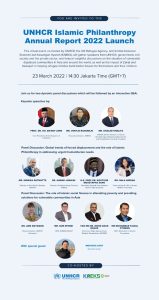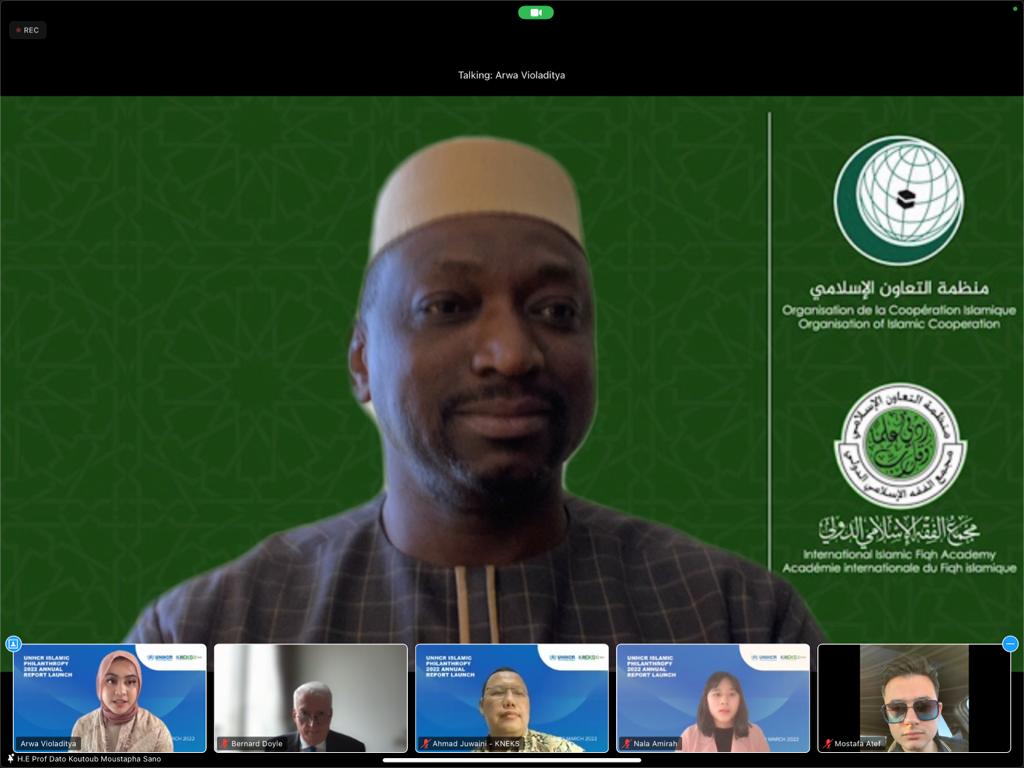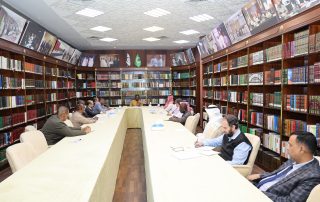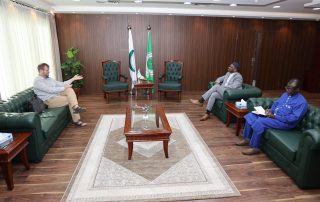
The United Nations High Commissioner for Refugees (UNHCR), in cooperation with the Indonesian National Committee for Islamic Economics and Finance in Jakarta, organized on Wednesday 20 Sha’ban 1443H corresponding to 23 March 2022G a virtual dialogue event via zoom technology, in order to launch the UNHCR’s annual report on Islamic charitable work and its role in alleviating the suffering of refugees and displaced persons in order to proceed with the appeal to philanthropists to take care of this segment of society by taking advantage of the Islamic social financing tools represented in zakat, alms and donations, which have a significant role in meeting the needs of refugees and displaced persons in the present era.
In an intervention by His Excellency Prof. Koutoub Moustapha Sano, Secretary General of the International Islamic Fiqh Academy (IIFA), from his residence in Islamabad, Islamic Republic of Pakistan, he pointed out the importance of dealing with the issue of refugees and displaced persons as a humanitarian issue in the first place, and therefore, it transcends religions and beliefs, as well as social and economic considerations, which makes paying it great attention and great care much appreciated and commended, especially since the issue of asylum and displacement is directly related to the issue of the supreme shariah purposes that the divine religions called for their preservation and considered them among the necessary objectives that must be protected and preserved from any defect. The goal of self-preservation is the first of those objectives and the first of necessary interests, and from this goal stems the duty to preserve the human dignity of refugees and displaced persons, by enabling them to obtain a decent living that is appropriate for them, and providing appropriate health care, and infrastructure for them, their children and their spouses, such as schools, clinics, wells, and so on.
His Excellency explained on this occasion that the Academy had previously issued its historic resolution No. 165, in which it explicitly stated that it is permissible by Shariah to spend funds from zakat, sadaqah “alms” and donations to meet the needs of refugees and displaced persons, as they fit the fixed descriptions of the eight cases that merit zakat. They are the poor, the needy, those who collect and distribute zakat, the newly converted to Islam, the slaves, the debtors, the way of God (= general interests) and the wayfarers. Accordingly, refugees and displaced persons fall under the categories of the poor, the needy, the debtors, the wayfarers, and the newly converted to Islam. Therefore, it is permissible in Shariah to help them from zakat funds, just as it is permissible to help them from other funds of donations and alms such as wills, endowments, penances and vows to alleviate their suffering and in solidarity with them in their misfortune and harsh conditions.
At the end of the event, His Excellency answered the questions put to him by the moderator of the session, stressing the Academy’s pride in its partnership with the UNHCR in order to provide Shariah and intellectual support for all UNHCR activities and programs aimed at collecting donations and alms for the Zakat Fund for refugees and displaced persons.

Read Also
Lastest








